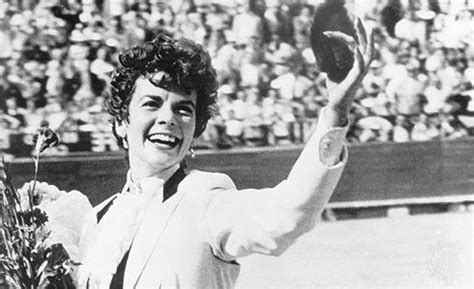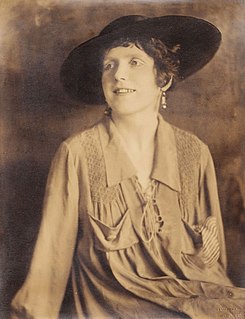A Quote by Maia Wojciechowska
In Spain, however, people have found a way of cheating death. They summon it to appear in the afternoon in the bull ring, and they make it face a man. Death - a fighting bull with horns as weapons - is killed by a bullfighter. And the people are there watching death being cheated of its right.
Related Quotes
Someone's killed 100,000 people. We're almost going, "Well done! You killed 100,000 people? You must get up very early in the morning! I can't even get down the gym. Your diary must look odd: 'Get up in the morning, death, death, death, death, death, death, death - lunch - death, death, death - afternoon tea - death, death, death - quick shower ...' "
The only place where you could see life and death, i. e., violent death now that the wars were over, was in the bull ring and I wanted very much to go to Spain where I could study it. I was trying to learn to write, commencing with the simplest things, and one of the simplest things of all and the most fundamental is violent death.
In fighting a bull you're always aware of a paradox concerning your perceptions of the bull. On the one hand it's your perceptions of the bull that give you the upper hand. You read the bull, you learn to read the bull more and more accurately, and this reading of the bull is how you deploy your intelligence against the bull's intelligence. Your accuracy in reading the bull is a weapon, maybe your most important weapon, against all the bull's weapons. On the other hand, you're human, you have the human tendency to read into the bull things which may not actually be there.
There is another side to death. Whether death happens through an act of violence to a large number of people or to an individual, whether death comes prematurely through illness or accident, or whether death comes through old age, death is always an opening. So a great opportunity comes whenever we face death.
Everybody is afraid of death for the simple reason that we have not tasted of life yet. The man who knows what life is, is never afraid of death; he welcomes death. Whenever death comes he hugs death, he embraces death, he welcomes death, he receives death as a guest. To the man who has not known what life is, death is an enemy; and to the man who knows what life is, death is the ultimate crescendo of life.
What we put into every moment is all we have. You can drug yourself to death or you can smoke yourself to death or eat yourself to death, or you can do everything right and be healthy and then get hit by a car. Life is so great, such a neat thing, and yet all during it we have to face death, which can make you nuts and depressed.
Misunderstanding may arise by confusing the Buddhist and scientific definitions of death. Within the scientific system you spoke quite validly of the death of the brain and the death of heart. Different parts of the body can die separately. However, in the Buddhist system, the word death is not used in that way. You'd never speak of the death of a particular part of the body, but rather of the death of an entire person. When people say that a certain person died, we don't ask, "Well, which part died?"
Don Pedro - (...)'In time the savage bull doth bear the yoke.' Benedick - The savage bull may, but if ever the sensible Benedick bear it, pluck off the bull's horns and set them in my forehead, and let me be vildly painted; and in such great letters as they writes, 'Here is good horse for hire', let them signify under my sign, 'Here you may see Benedick the married man.





































